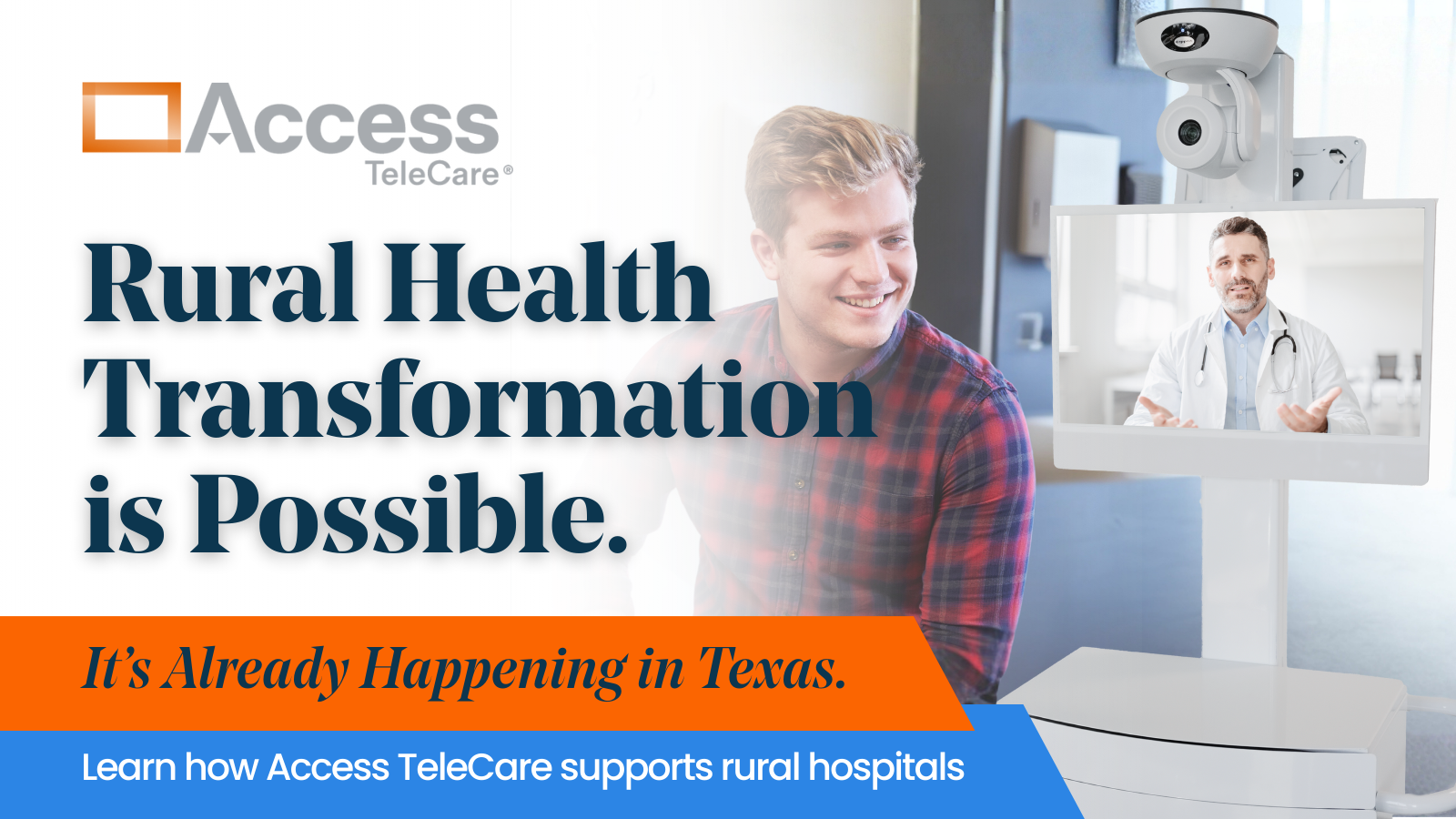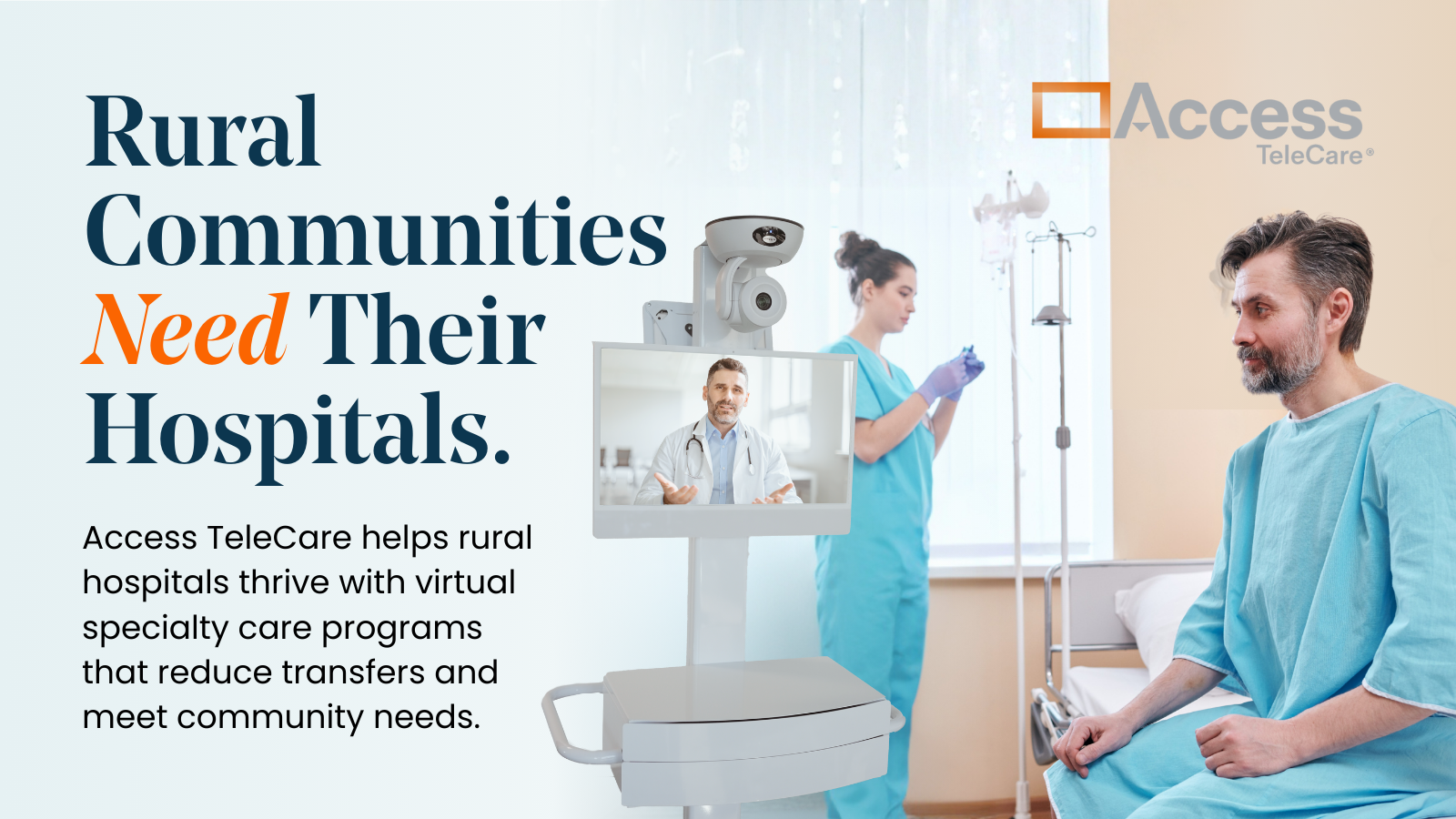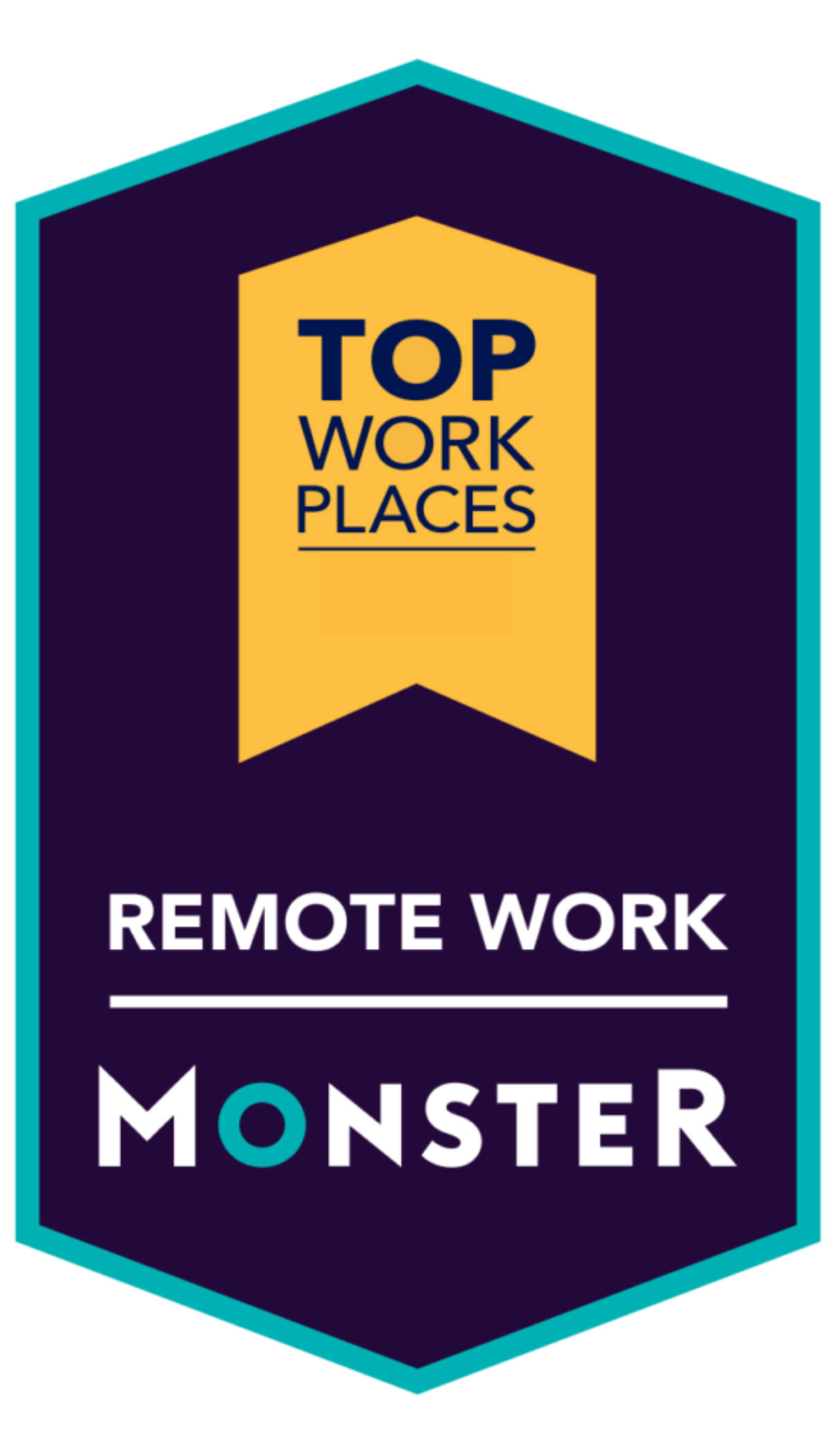More than 86 percent of the country’s rural counties have no cardiologists, according to new research published in the JACC, the journal of the American College of Cardiology. But, the shortage of cardiologists is not limited to rural areas. Among all 3,143 U.S. counties, 46 percent had no cardiologists. The lack of access to cardiologists is contributing to higher cardiovascular risk index, shorter life expectancy, higher cardiovascular mortality rates, and greater prevalence of all risk factors for these communities’ residents.
With a shortage of cardiologists nationwide and a geographic imbalance in where they practice, telemedicine offers an immediate solution for hospitals. As one of Access TeleCare’s first service lines, teleCardiology has been successfully deployed in hospitals in communities across the country for many years, reducing transfers, length of stay, wait times for surgeries, and locums and recruiting costs. In addition, Access TeleCare helps hospitals increase their case mix index and ED throughput while sustaining the community’s trust and confidence that their local hospital can provide care for them no matter the need.
Piggott Health System in rural Arkansas is one such hospital. Located in rural Arkansas, the 25-bed hospital relies on Access TeleCare exclusively for cardiology coverage so it can keep cardiac patients close to home for all their care needs.
“From arrhythmias to congestive heart failure, Access TeleCare’s cardiologists diagnose and manage the gamut of heart-related conditions, providing hospitals with on-demand access to specialty care when their patients need it,” said Chris Gallagher, M.D., CEO, Access TeleCare. “The shortage and geographic maldistribution of cardiologists need not be an insurmountable barrier for hospitals that want to provide the full range of hospital specialty care.”
Learn more about our cardiology programs and contact us to get started.









